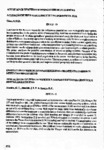Please use this identifier to cite or link to this item:
http://www.alice.cnptia.embrapa.br/alice/handle/doc/667215Full metadata record
| DC Field | Value | Language |
|---|---|---|
| dc.contributor.author | LIMA, R. M. B. de | pt_BR |
| dc.date.accessioned | 2015-06-09T05:52:15Z | - |
| dc.date.available | 2015-06-09T05:52:15Z | - |
| dc.date.created | 1997-01-14 | pt_BR |
| dc.date.issued | 1995 | pt_BR |
| dc.identifier.citation | In: SHIFT WORKSHOP, 2., 1995, Cuiaba. Summaries of lectures and posters. Cuiaba: UFMT, 1995. | pt_BR |
| dc.identifier.uri | http://www.alice.cnptia.embrapa.br/alice/handle/doc/667215 | pt_BR |
| dc.description | Aceitação de sistemas de policultivo pelo produtor: Land use in the Amazon region by the indigenous populations was ecologically appropriate, but inappropriate in the general sense of sustainability, resulting in economic hardship for the people concerned. Modern agricultural practices (monocultures), for their part, have led to a series of failures. Successful agricultural activity in Amazonia calls for more complex systems that improve nutrient recycling and reduce the loss of plant material. In this context, agroforestry systems can rehabilitate traditional, indigenous practices by optimizing land use and satisfying basic human needs without destroying natural resources, and improving them where possible. The poster analyses the possible contribution of mixed cropping systems. Because of the similarities to the production systems encountered in Amazonia, mixed cropping systems may become more attractive to the local population to the extent that they prove to be flexible, sustainable and economically viable in practice. Their acceptance, adoption and use by farmers will help to alley general concerns, and improve overall prosperity and security. | pt_BR |
| dc.language.iso | eng | eng |
| dc.rights | openAccess | eng |
| dc.subject | Area degradada | pt_BR |
| dc.subject | Agrofloresta | pt_BR |
| dc.subject | Brasil | pt_BR |
| dc.subject | Amazonas | pt_BR |
| dc.subject | Manaus | pt_BR |
| dc.subject | Tropical rain forest | pt_BR |
| dc.subject | Reclamation | pt_BR |
| dc.subject | Agroforest | pt_BR |
| dc.subject | Sustainability | pt_BR |
| dc.title | Acceptance of mixed cropping systems by farmers. | pt_BR |
| dc.type | Resumo em anais e proceedings | pt_BR |
| dc.date.updated | 2019-01-22T11:11:11Z | pt_BR |
| dc.subject.thesagro | Agricultura Sustentável | pt_BR |
| dc.subject.thesagro | Cultivo Multiplo | pt_BR |
| dc.subject.thesagro | Floresta Tropical Úmida | pt_BR |
| dc.subject.thesagro | Recuperação do Solo | pt_BR |
| dc.subject.nalthesaurus | environmental degradation | pt_BR |
| dc.subject.nalthesaurus | multiple cropping | pt_BR |
| dc.subject.nalthesaurus | mixed cropping | pt_BR |
| dc.format.extent2 | p. 156. | pt_BR |
| riaa.ainfo.id | 667215 | pt_BR |
| riaa.ainfo.lastupdate | 2019-01-22 -02:00:00 | pt_BR |
| dc.contributor.institution | ROBERVAL MONTEIRO BEZERRA DE LIMA, CPAA. | pt_BR |
| Appears in Collections: | Resumo em anais de congresso (CPAA)  | |










